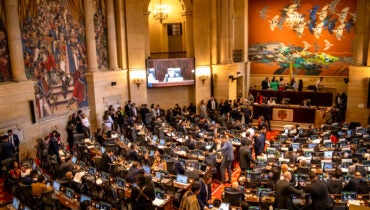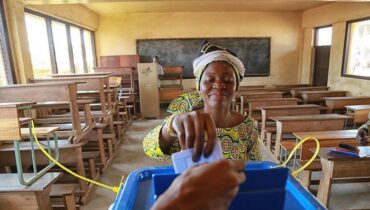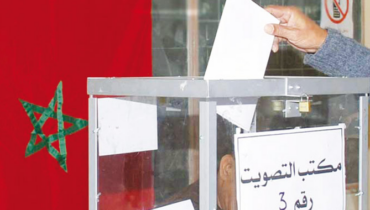Attacks on women in politics are on the rise around the world. New data and research from the Armed Conflict Location & Event Data Project (ACLED) reveal how physical violence targeting women in politics is creating dangerous – and at times lethal – obstacles to women’s participation in political processes. Even as women are engaging in elections in record numbers around the world – both by seeking office and by voting – they are being met with an increasingly violent backlash.
Over the course of 2020 and 2021, Mexico, Colombia, China, India, Brazil, Burundi, Myanmar, Afghanistan, the Philippines, and Cuba top the list of the most violent countries in the world for women in politics. With rapidly evolving political situations as well as upcoming elections in many of these countries, the threat of violence targeting women in politics may only grow in the new year. Examining key trends from the latest political violence data for these countries will provide a glimpse of what to watch for in 2022 when it comes to the risks facing women in politics.
Mexico is the most violent country for women in politics, and it is getting worse: violence rates in 2021 surpassed 2020, and rates in 2020 surpassed 2019. Women candidates for office face particularly high risks of violence, especially at the hands of anonymous armed agents. For example, on 26 May 2021, in Tocuaro, Guanajuato, the woman candidate for local deputy for the Green Ecologist Party of Mexico (PVEM) in District 22 was attacked by armed men, who shot at her and her campaign team while she was holding a rally. Such armed actors often target candidates and politicians as a means to influence local politics, especially in cases where a candidate might pose a threat to lucrative criminal activity, such as drug trafficking. Government officials, specifically women police officers, have also faced a rise in attacks as cartels have begun to increasingly target off-duty officers. For example, around 18 March 2018, in Leon de los Aldama, in Guanajuato, an off-duty municipal policewoman was killed and her body was found with signs of sexual violence and strangulation in Colonia El Coecillo.
In Colombia, women activists, human rights defenders, and social leaders face increased risk, especially in the departments of Norte de Santander and Cauca, with attacks often carried out by anonymous armed agents. For example, around 23 September 2021, in the rural area of Jambalo, in Cauca department, three unidentified armed individuals shot dead an indigenous woman who was an authority in her community. In Colombia, too, incidents of violence targeting women in politics remained constant from 2019 to 2020, and increased from 2020 to 2021 – signaling a growing threat.
“As unprecedented numbers of women are participating in political processes, these risks continue to multiply.”
In China, women activists and human rights defenders (known as ‘petitioners’) face the most risk, often targeted with forced disappearances and held incommunicado by the Chinese state. For example, on 24 February 2019, a human rights activist was taken away and beaten in Beijing by personnel from the Kunshan Municipal Government. Her mobile phones and identity card were also forcibly confiscated before she was sent to a temporary residence in Kunshan City where she was detained under surveillance. Reports of this type of violence have declined in the country since the start of the COVID-19 pandemic – though there has been a rise at the same time in people being held in strict quarantines, with some alleging that police are keeping them quarantined without valid reasons. This trend suggests that authorities may be exploiting pandemic restrictions to target petitioners, including women, with less scrutiny.
In India, women political party supporters face the highest levels of violence, often from violent mobs associated with rival political parties. For example, on 22 July 2021, members of the ruling Bharatiya Janata Party (BJP) allegedly attacked members of the women’s wing of the Trinamool Congress Party (TMC) on the outskirts of Cooch Behar town, injuring two of the women. Violence targeting women in politics peaked in 2019, in line with the country’s general election that year. The voter turnout for that election was the highest ever, as was the rate of participation by women voters. As such, while such targeted violence has since declined, India still remains one of most violent countries for women in politics in the world, and the threat of such violence remains high in the lead up to future elections – such as the upcoming assembly elections scheduled to begin next month.
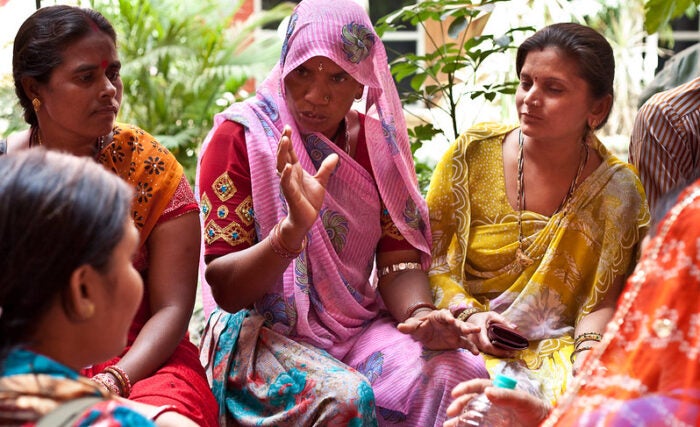
In Brazil, women candidates for office face heightened targeting, especially in the run up to elections, again with attacks often carried out by anonymous armed agents seeking to influence local politics and secure access to lucrative criminal activity. For example, on 30 August 2020, in Mage, Rio de Janeiro, a candidate for the City Council (PSB) was killed by drug traffickers and her body was thrown into a river. The killing was motivated by the candidate’s claims that she would report drug trafficking in the area if elected. Such targeted violence spiked in Brazil in 2020, in the lead up to the November municipal election. Violence is likely to spike again ahead of the general election scheduled for later this year.
In Burundi, political party supporters are most often targeted for violence, especially at the hands of the Imbonerakure, since 2018. The Imbonerakure are the youth wing of the ruling National Council for the Defence of Democracy (CNDD-FDD) party in Burundi, acting as a violent pro-government militia. The Imbonerakure frequently target the opposition or those perceived to support the opposition, especially around contentious periods like elections. For example, on 28 March 2020, members of the Imbonerakure raped and beat up a woman member of the National Congress for Liberation (CNL) party in Kirambi.
In Myanmar, politically-motivated attacks have increased dramatically in the aftermath of the February 2021 coup – and with that, attacks on women engaged in the political sphere have also risen, especially attacks on government officials and political party supporters. For example, on 20 September 2021, in Myoma Botae ward of Sagaing region, a woman party campaigner for the Union Solidarity and Development Party (USDP) was shot and killed by unknown gunmen. State forces have also targeted women leaders of the anti-coup protest movement, who often stand on the front lines of the demonstrations – despite the military junta’s violent crackdown on protesters.
In Afghanistan, women in politics have long faced a high risk of violence, and this threat has grown in recent years. Government officials, such as off-duty police officers and court employees like judges, have been increasingly targeted by the Taliban as well as by anonymous armed groups. For example, on 29 December 2018, a woman activist was kidnapped and killed by Taliban militants who accused her of adultery in Dashti Qala district in Takhar. Following the fall of Kabul in August 2021, and the subsequent rise of the Taliban, women now face even greater risk. This is especially so for those who aim to maintain the hard-won rights of women and girls in the country – the erosion of which would also increase the risk of other forms of violence, such as domestic violence, faced by women and girls in the country.
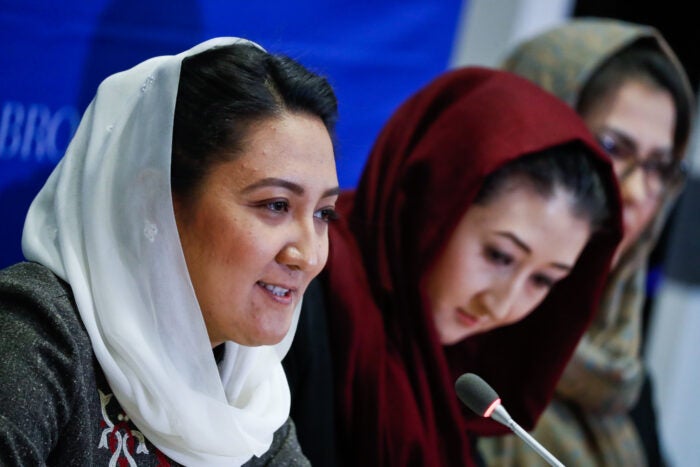
In the Philippines, women candidates for office, politicians, political party supporters, government officials, and activists have all faced frequent targeting in recent years, with violence largely carried out by anti-drug ‘vigilantes’ – who often have clear links to the state and target civilians as part of the ongoing ‘drug war’ – the Philippine military, and anonymous armed agents (who could also have links to the state). Opposition politicians and supporters have often been targeted, with the state alleging that they have links to drug suspects or communists. For example, on 14 May 2021, a barangay councilor was shot dead in a vigilante-style attack by unidentified assailants in Barangay Luyo in Central Visayas, allegedly for being a ‘drug suspect.’ The upcoming election, scheduled for later this year, will prove contentious as Rodrigo Duterte’s presidential mandate ends while he faces international and domestic scrutiny over his handling of the drug war. In this fraught political climate, targeted violence is likely to escalate.
Lastly, in Cuba, violence targeting women engaging in the political sphere has increased in recent years. This violence has especially targeted women activists, including some groups led by women. Protests have been increasing in Cuba, led by a collective of artists advocating for increased freedom under the regime, and further ignited by the coronavirus pandemic and its detrimental impacts on the economy. The Cuban government has responded forcefully, attacking and arresting both movement leaders as well as supporters. For example, on 5 May 2021, in Havana, a woman activist was arrested and forcibly stripped naked by police officers in a cell in San Miguel del Pardon municipality. Continued suppression is likely: just last month, the government dealt harsh sentences to protesters, handing down decades-long prison terms to some activists. While these responses – including both physical and legal forms of repression – may prevent some from engaging in further activism, those who continue are bound to face further state crackdowns in the new year.
“With contentious periods like elections on the horizon across many of these countries, political violence targeting women in politics may increase even further in 2022, making it yet more imperative to protect women’s rights to engage in politics.”
These disparate cases underline the wide variation in risks that women in politics face around the world. And as unprecedented numbers of women are participating in political processes, these risks continue to multiply.
With contentious periods like elections on the horizon across many of these countries, political violence targeting women in politics may increase even further in 2022, making it yet more imperative to protect women’s rights to engage in politics. Continued tracking of the myriad forms this violence takes is crucial for identifying programs, policies, and strategies to effectively combat the full spectrum of threats — many of which are local and context-specific. Improved protections must be put into place, including preventive measures, to facilitate and safeguard women’s participation in politics. If they are not, many hard-fought gains for women around the world could be in jeopardy.
Roudabeh Kishi, Ph.D., is the Director of Research & Innovation at the Armed Conflict Location & Event Data Project (ACLED), the most widely used, realtime data and analysis source on political violence and protest in the world. Find her on Twitter @roudabehkishi.
